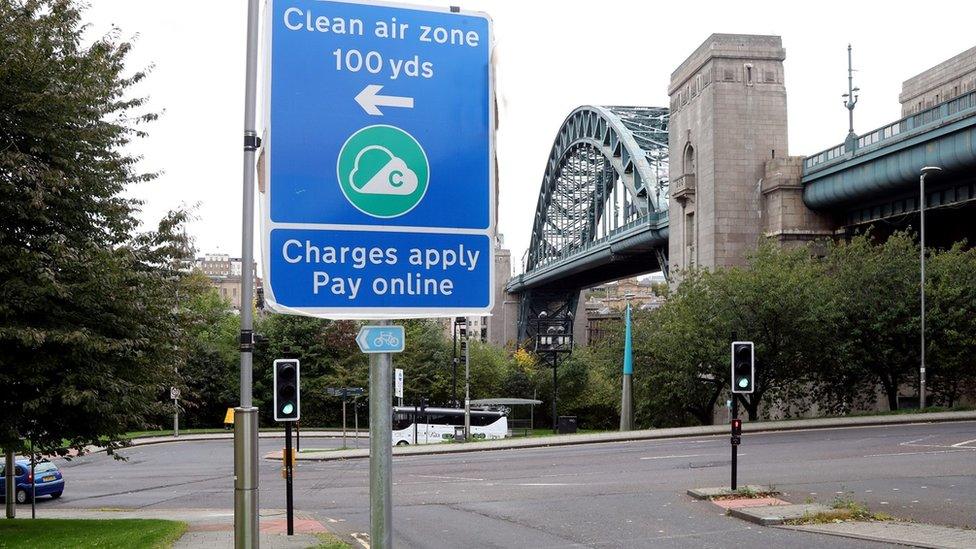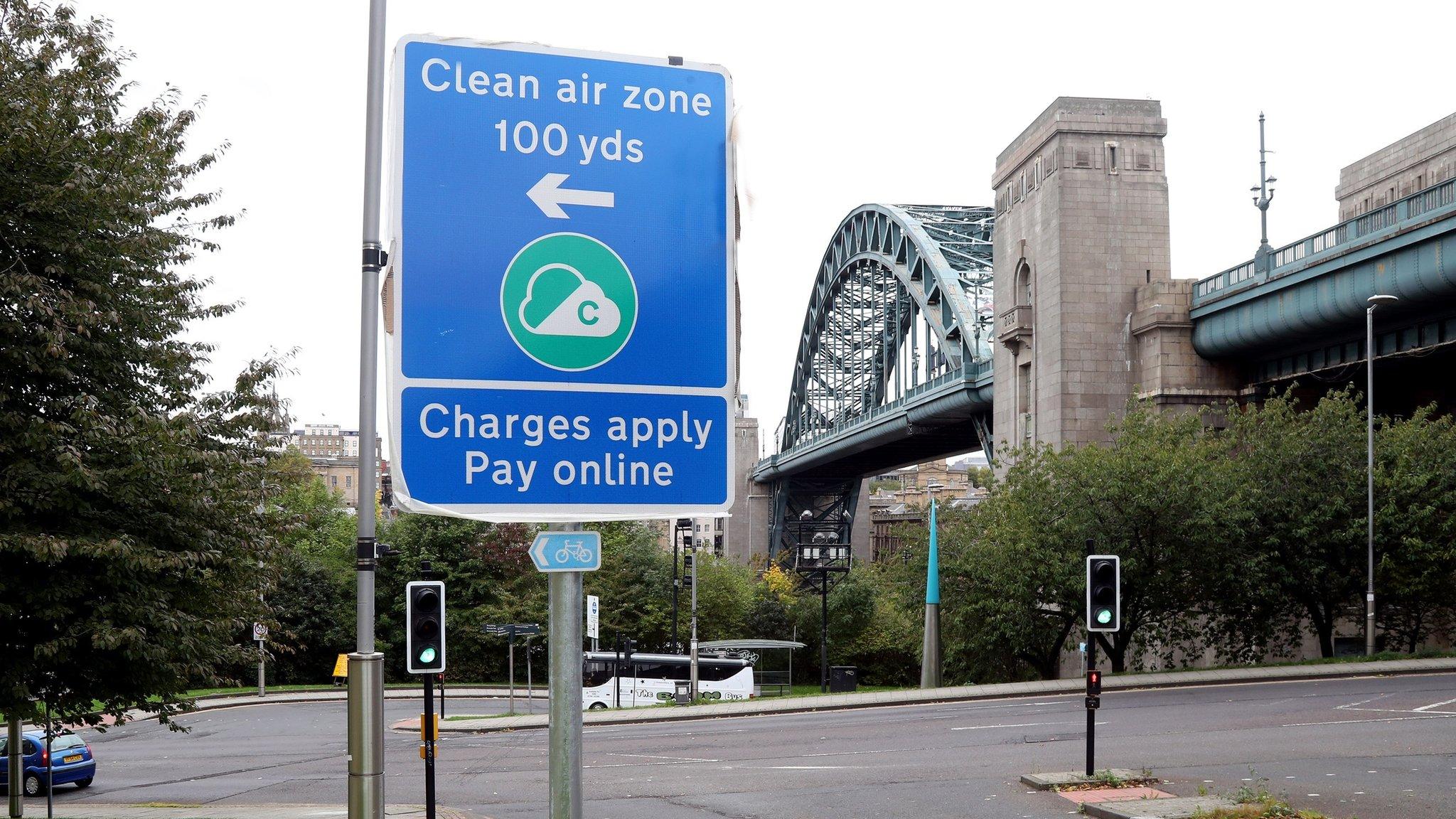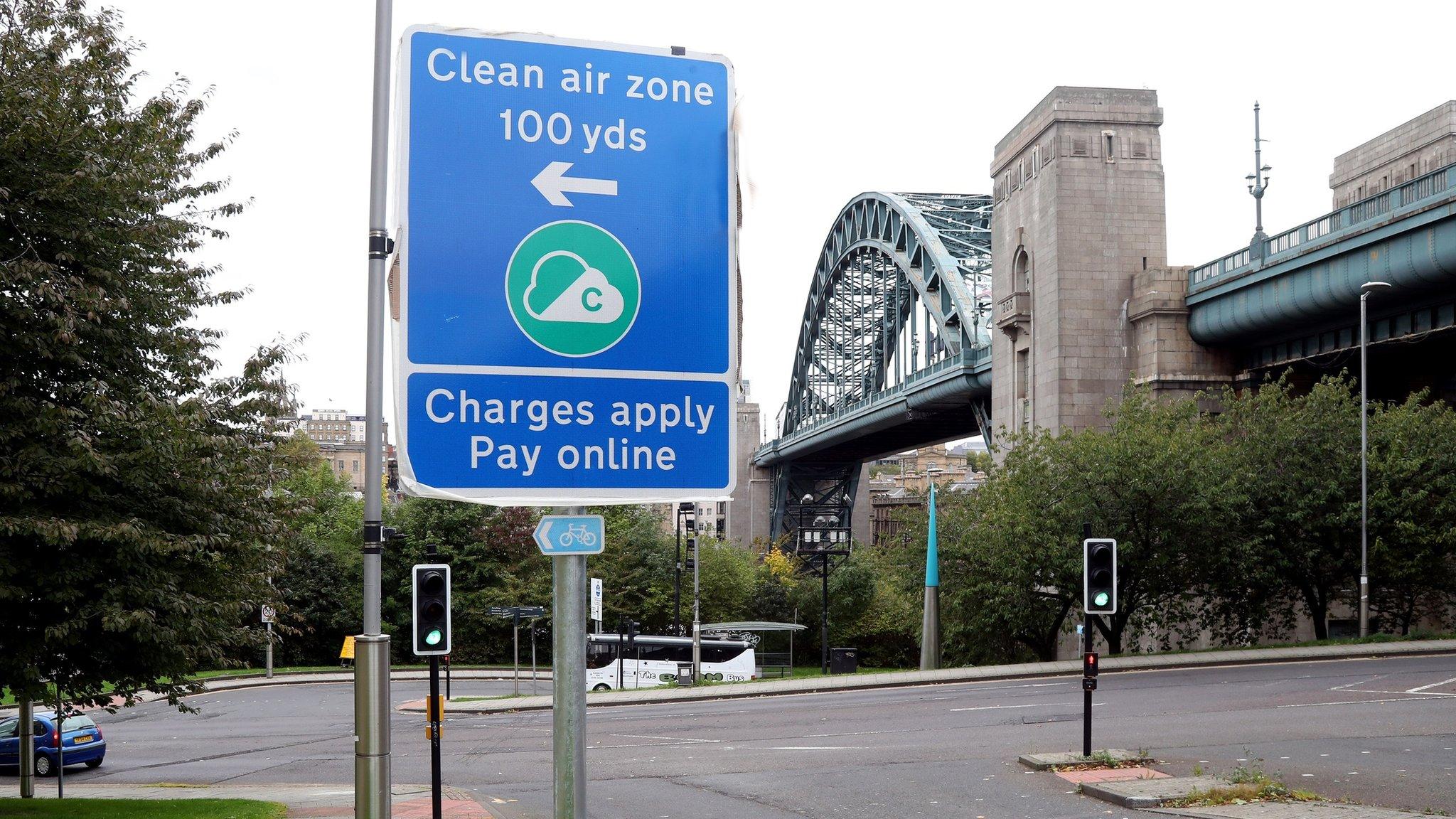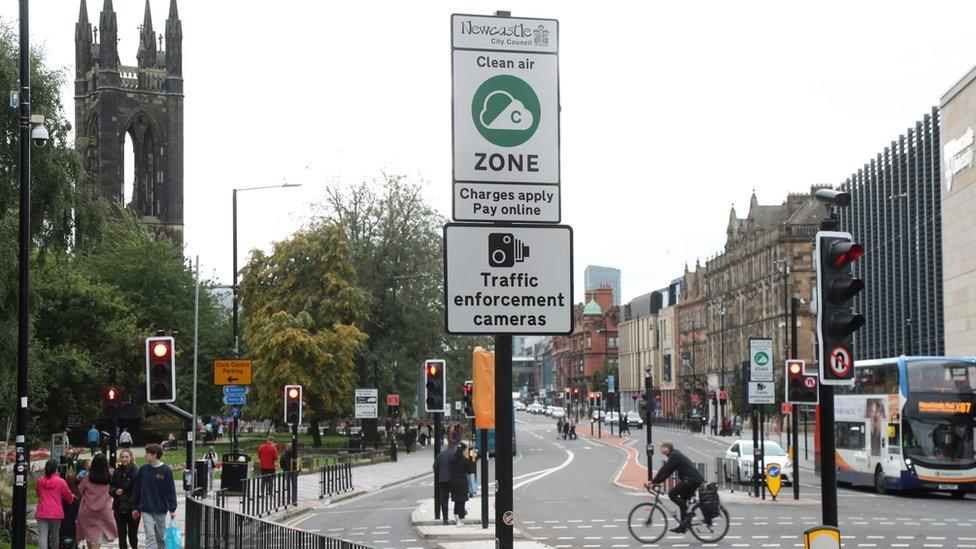Newcastle's Clean Air Zone generates more than £2.4m
- Published

Income from CAZ charges is primarily used to cover the scheme's running costs, Newcastle City Council says
Drivers have paid more than £2.4m in tolls and fines in the first year of Newcastle's Clean Air Zone (CAZ).
Introduced on 30 January, 2023, the scheme has seen charges of £12.50 to £50 a day for older taxis, buses, coaches and lorries that do not comply with emissions standards.
Since July, some vans have also been charged but private cars remain exempt.
Newcastle City Council said less than 1% of vehicles entering the city centre had been required to pay a toll.
Latest figures, which run up to 31 December 2023, show:
69,344 toll payments have been made, totalling £1,115,035
43,625 penalty charge notices (PCNs) for £120, or a reduced £60 if paid in 14 days, have been issued
Those PCNs have generated £1,297,401
The CAZ was introduced in response to a government order for councils to reduce pollution levels in emissions hotspots.
Poor air quality has been linked to more than 300 premature deaths on Tyneside annually.
Data assessing how successful the zone has been in reducing air pollution levels is expected to be released later this year.
'Gradual decrease'
The city council has been criticised for not giving out more grant funding to help owners of high-polluting vehicles upgrade to cleaner models and for imposing strict conditions on who is eligible to apply.
Only £2.5m out of a total £15m available has been handed over so far, though a further £2.8m worth of grants have been approved but are as yet unclaimed, the Local Democracy Reporting Service said.
The council recently paused its grant scheme in order to review its criteria.
A CAZ spokesperson said: "One year on from the launch, we are beginning to see a gradual decrease in the number of non-compliant vehicles entering the zone.
"We will continue to monitor pollution data and expect to be able to see evidence of the impact of the CAZ once the annual average data for 2023 becomes available later this year.
"The impact of poor air quality on people's health - particularly children and those living with chronic health conditions - is well documented and we remain committed to tackling this."

Follow BBC Newcastle on Facebook, external, X (formerly Twitter), , externaland Instagram, external. Send your story ideas to northeastandcumbria@bbc.co.uk, external.
- Published30 November 2023

- Published7 November 2023

- Published9 January 2023
